
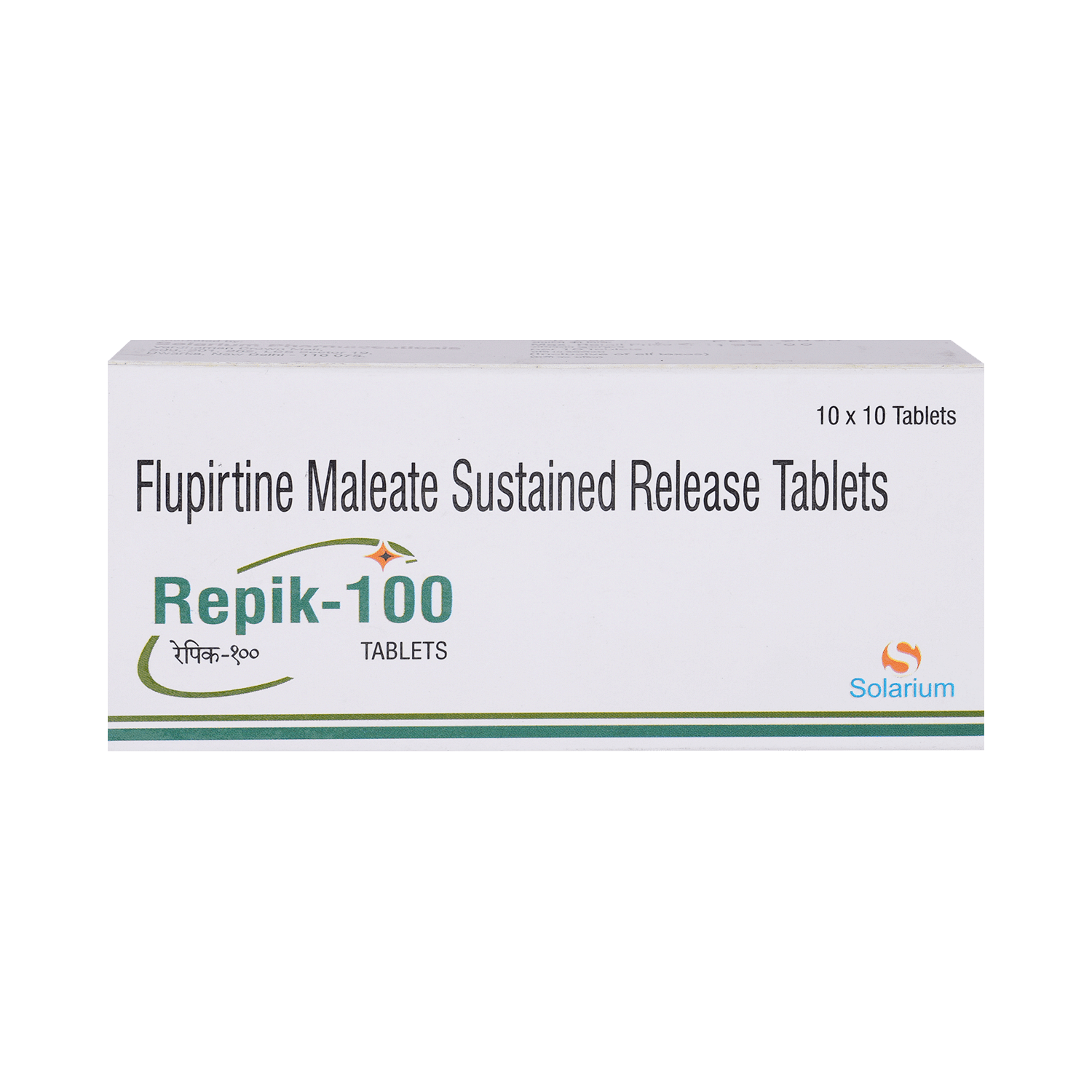
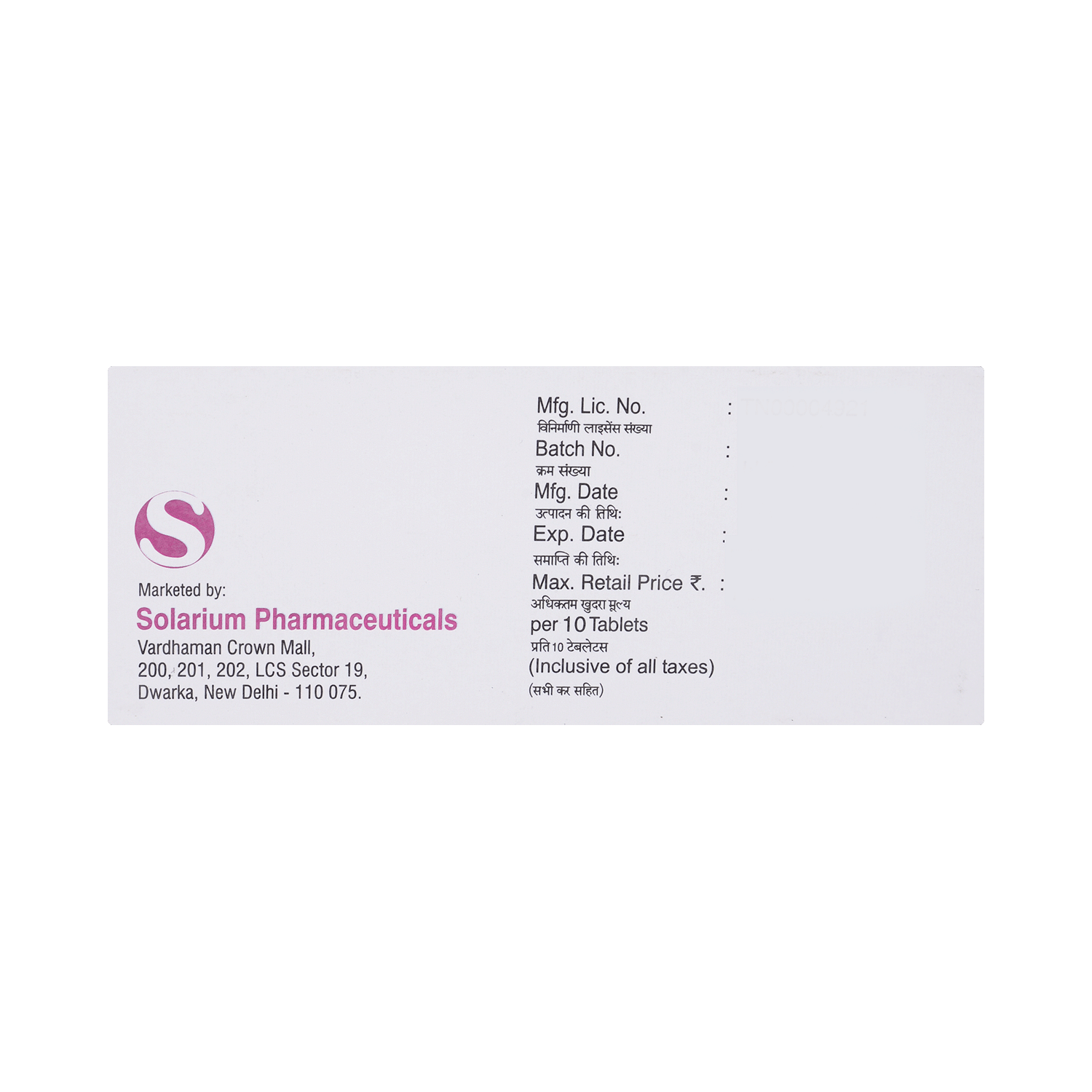
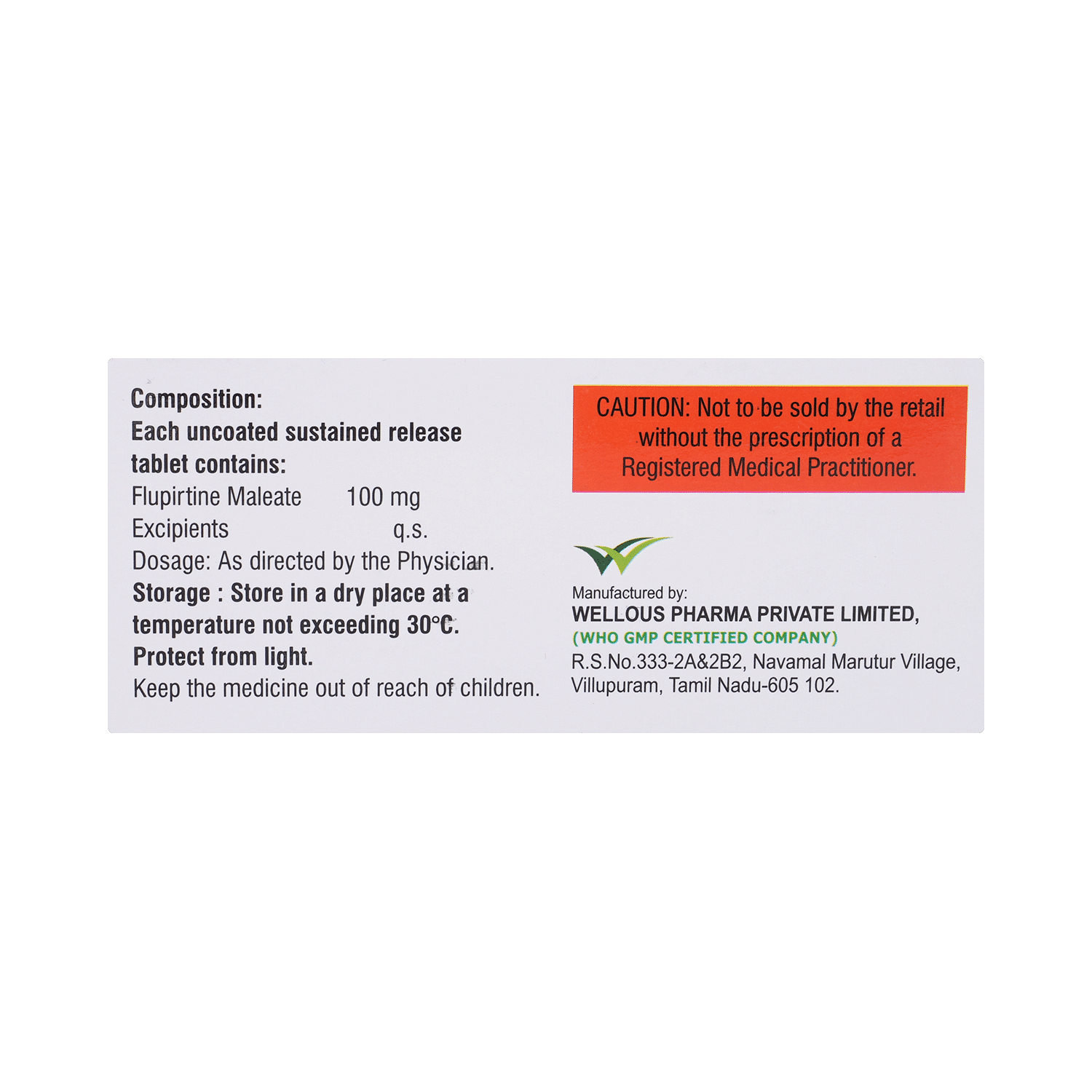
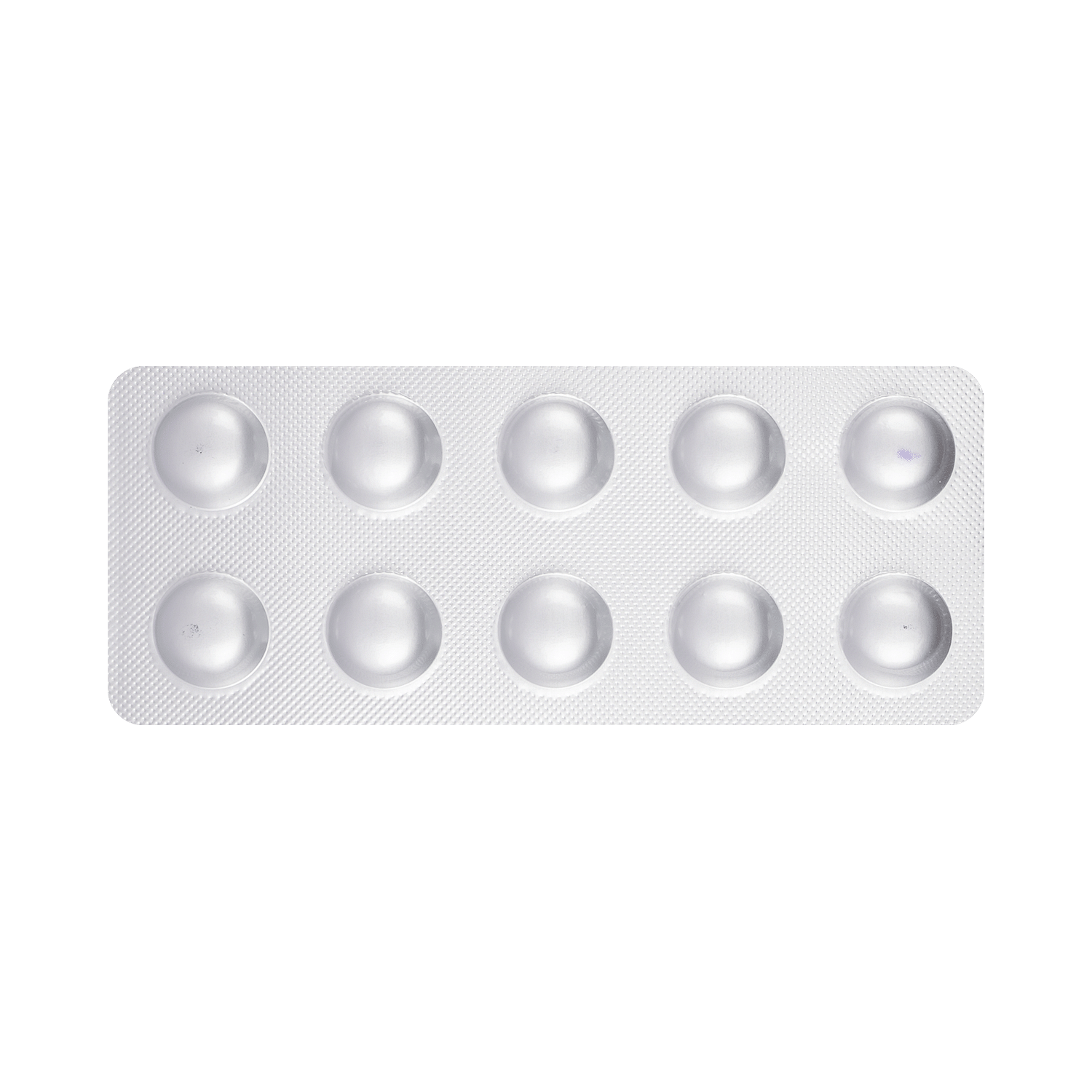
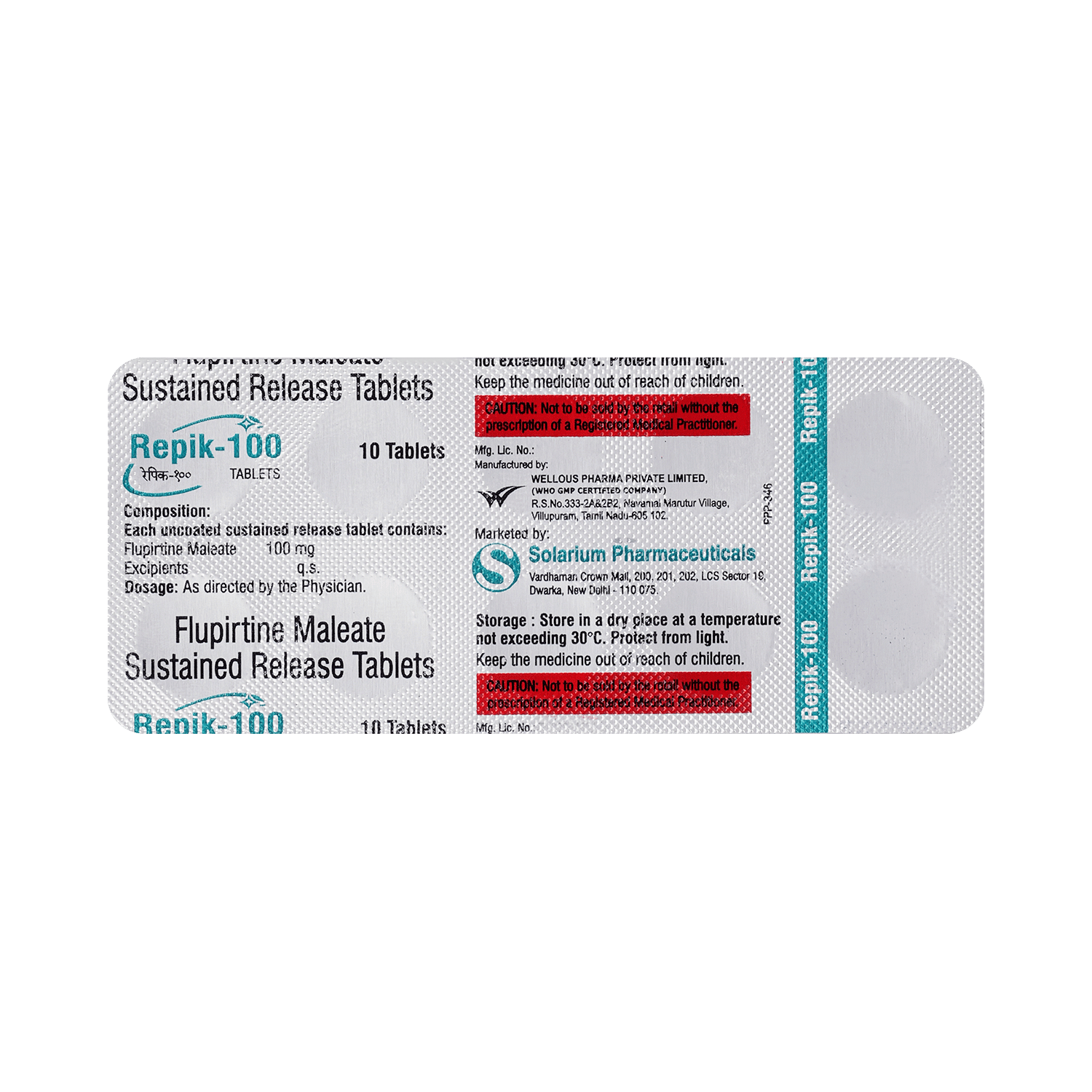
Repik 100 Tablet
Manufacturer
Solarium Pharmaceuticals
Salt Composition
Flupirtine (100mg)
Key Information
Short Description
Repik 100 Tablet is a pain-relieving medicine used to treat acute and chronic pain associated with various conditions such as muscle pain, headache, nerve pain, postoperative pain, and menstrual cramps.
Dosage Form
Tablet
Introduction
Repik 100 Tablet can be taken with or without food. In general, you should try to use the smallest amount necessary to control your symptoms for the shortest possible time. You should take this medicine regularly while you need it. Try not to miss doses as this will make the medicine less effective. Some of the common side effects of this medicine include fatigue, dizziness, drowsiness, nausea, dryness in mouth, and abdominal bloating. If any of these side effects do not go away or get worse, you should let your doctor know. Your doctor may be able to suggest ways of preventing or reducing the symptoms. To make sure it is safe for you, before taking this medicine, let your doctor know if you have any medical conditions or disorders. You should also tell your doctor all the other medicines you are using or taking. Pregnant and breastfeeding women should consult their doctors before using this medicine.
Directions for Use
Take this medicine in the dose and duration as advised by your doctor. Swallow it as a whole. Do not chew, crush, or break it. Repik 100 Tablet may be taken with or without food, but it is better to take it at a fixed time.
How it works
Repik 100 Tablet decreases the perception of pain by blocking the transmission of pain signals to the brain.
Quick Tips
Repik 100 Tablet is given when pain killers (NSAIDs) cannot be given due to gastric damage caused by them. Inform your doctor before starting Repik 100 Tablet if you have an underlying liver disease, take alcohol regularly, are pregnant or planning to get pregnant, or are breastfeeding. Get your liver function tests done before starting Repik 100 Tablet and follow up tests every week while you are taking the medicine. Stop taking Repik 100 Tablet and immediately inform your doctor if you get any symptoms of liver disease like nausea, vomiting, stomach pain, or yellow-colored urine.
Related Medicines

Flupimac 100mg Tablet
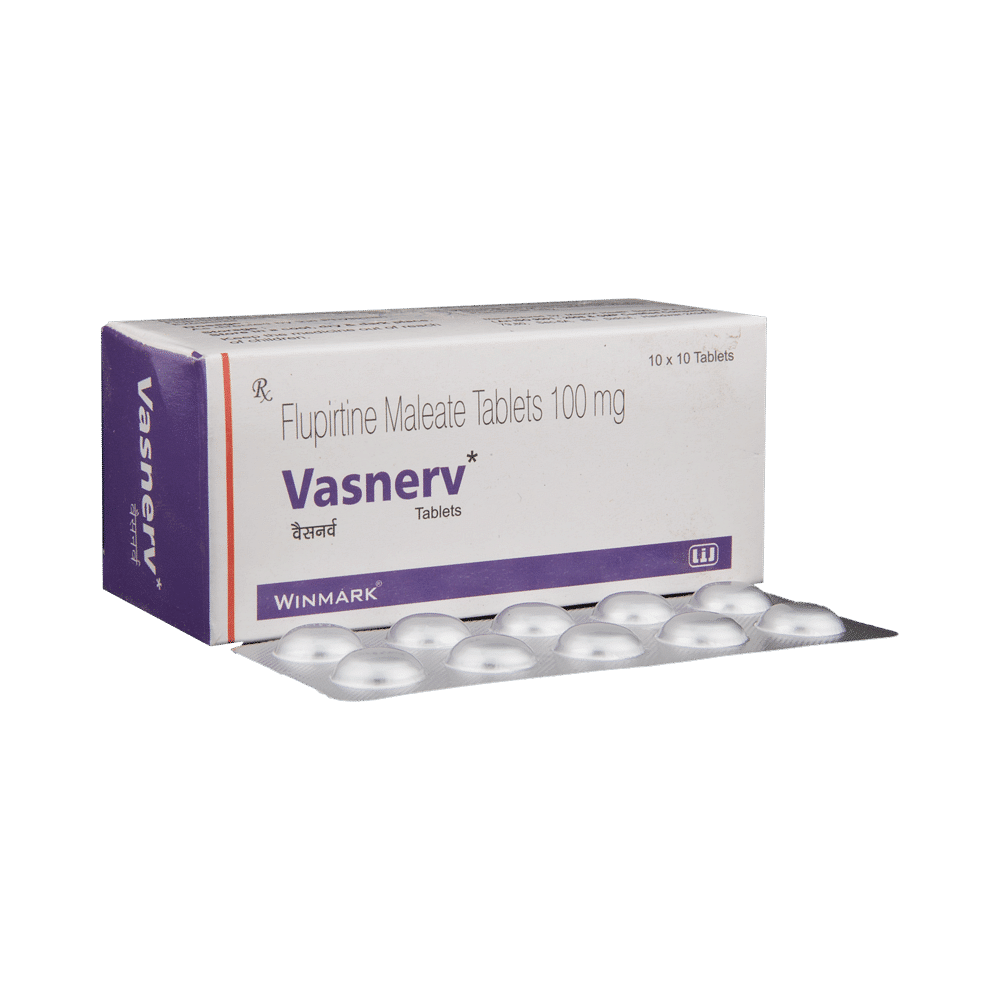
Vasnerv Tablet

Flutense 100mg Tablet

Fp TINE 100mg Tablet

Retowel 100mg Tablet

Flupicare 100mg Tablet

Ketadol 100mg Tablet

Priwell 100mg Tablet

Supirtin 100mg Tablet

Flupride 100mg Tablet
Frequently asked questions
Is Repik 100 Tablet effective in treating fibromyalgia?
While Repik 100 Tablet has shown promise in clinical studies for the treatment of fibromyalgia, it is essential to note that it has not received formal regulatory approval for this condition. Fibromyalgia is a chronic condition characterized by widespread musculoskeletal pain, fatigue, and depression. Patients seeking treatment for fibromyalgia should consult with their healthcare provider to discuss the best course of treatment.
What are the benefits of combining Repik 100 Tablet with paracetamol?
Both Repik 100 Tablet and paracetamol are effective pain relievers, but they work through different mechanisms. When taken together, they can provide enhanced pain relief compared to using either medication alone. However, it is crucial to monitor liver function closely when using these medications in combination, as they can both cause liver toxicity.
Does Repik 100 Tablet cause liver toxicity?
Yes, Repik 100 Tablet can cause liver toxicity. Patients with underlying liver disease should not use Repik 100 Tablet, and it is essential to monitor liver function closely when taking this medication.
Can Repik 100 Tablet be used to treat osteoarthritis pain?
Repik 100 Tablet can be used to relieve pain associated with osteoarthritis and post-orthopedic surgery pain. It may be particularly beneficial for patients who cannot take nonsteroidal anti-inflammatory drugs (NSAIDs) due to the risk of NSAID-induced gastritis. Patients should consult with their healthcare provider to determine the best treatment plan for their specific condition.
Does Repik 100 Tablet cause green discoloration of urine?
There have been rare reports of Repik 100 Tablet causing green discoloration of urine. If you experience this symptom, it is essential to inform your healthcare provider.
Is Repik 100 Tablet effective in treating epilepsy?
Repik 100 Tablet is not approved for the treatment of epilepsy. While some animal studies have suggested a potential benefit, further research is needed to determine its efficacy in humans. Patients with epilepsy should consult with their healthcare provider to discuss the best treatment options for their condition.
What happens if I stop taking Repik 100 Tablet?
If you have been taking Repik 100 Tablet for an extended period, you may experience withdrawal symptoms when you stop taking it, such as sweating, tremors, and mood alterations. It is essential to consult with your healthcare provider before stopping the medication to discuss the best course of action and manage any potential withdrawal symptoms.


